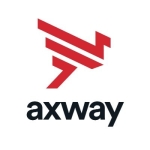What is our primary use case?
We host OpCon on a virtual server onsite. We do not replicate to a backup database. There are some other redundancies built-in, but we just have a single production server.
Working at a credit union, it does all of our back-office processing. We have a smallish IT staff and we wanted to relieve the IT staff from having to do the daily manual processes that were in place at the time.
OpCon handles all of our automated loads, uploads, and integration with our core financial application. We have expanded it to use their self-service options so that users may generate reports on the fly, or they might have manual steps along the way in their process. It allows them to check the results, review, work any exceptions and then continue the process just by clicking a button. They really like that part. It also has given us the opportunity to allow users that don't have access to the core to generate reports from the core and have it usually placed in a network share for them or emailed to them.
How has it helped my organization?
The biggest example in which OpCon has improved my organization is that we have to download and process files from the federal reserve several times a day. If we don't do it in a certain timeframe, we can be penalized. It's the fact that we can download these files, process them, get our accounting teams the information they need to work the exceptions that is one of the most important roles.
It's also nightly processing. When we do our overnight processing, if there is a delay to a job, we can set up alerts to let us know that a particular job is running longer and the person on-call can log in, take a look at it, and see if everything is progressing normally or if there's a problem before it becomes a big issue the next day.
Having the ability to monitor the process along the way with checks on a job when it's too long, it didn't finish on time, or a dependency is missing has been very helpful.
OpCon saves our IT time. We eliminated our backroom processing, which would be all of the IT-related functions. So most definitely it saves IT time. Conservatively, it has saved two and a half hours daily just because of some of the things that we were doing for other departments and now the other departments can do that themselves.
Since we implemented it in 2016, a lot of other tasks have been incorporated into it. So if those other areas would have wanted us to do those tasks, it would have added to our burden. If we have free time, they're going to find a way to fill it. It does free our time to do other things, to concentrate on things that require brain power rather than just entry.
Our overall productivity has also increased.
What is most valuable?
At its core, OpCon is a scheduler, but it can do so much more than that. The fact that it integrates with the core was the primary motivator in choosing this product. I was recruited for the position I'm at because of my experience with OpCon and my current company wanted to implement it.
Its flexibility would be the greatest benefit to it. You can really come up with some creative scheduling solutions. You're only limited by your imagination with some of the stuff. There are some limitations to it, of course, but I would say the biggest plus is the flexibility that it offers and its integration to the core.
We use the self-service feature. We use it in our IT department, our mortgage department uses it, and our accounting department uses it. We're slowly introducing the features to other areas. As more users see it, I'm hoping more users will embrace it so that we can expand it even further.
Our mortgage servicing users use it to run their daily processes. We have an integration with FICS, which is the product we use for our mortgage servicing. So they're able to utilize it to generate reports and do their daily postings.
Our accounting department uses it for ACH and even to set the prompts to close the general monthly general ledger. Our lending department also uses it for some of their jobs to process uploads that go to other vendors.
It's very helpful for reducing the complexity of the technical aspects of workload automation. It can be used as a simple checklist where you click the button. There are some things about it that might be improved upon as far as adding some features. That would be some nice things. SMA has always been very responsive to those types of input.
The self-service feature increases users' productivity because some of the tasks that they still have to do manually are automated, but those manual checks give them a place to stop the process rather than having to do each step along the way annually. They still have those manual interventions that they have to do, but the self-service button allows them to put that check-in there so that they can do what they need to do and then begin a certain process rather than having to do the whole thing.
It has also reduced calls to our IT department with the way we're using it. Previously a process might require the user to email IT staff to have us do the next step, to upload a file, something like that. Now we're removed from that situation and they just do it themselves.
The same goes for the closing of the general ledger. It used to require notifying IT and then we'd have to set the job accordingly. Now IT is taken out of the mix. So the end-user department has control over that process.
The automation of manual tasks has without a doubt reduced human error. Whenever you can automate something, as long as you have it set up correctly, to begin with, you totally reduce the chances of transposing a number or something like that.
At my previous employment, once we implemented OpCon we pretty much eliminated one FTE position. The person didn't lose their job, but he had other tasks that he took on. They reduced the amount of workload by one person. That was a much larger credit union.
If we had to do all of this manually, it would add up because we've added more tasks than what we originally had.
For how long have I used the solution?
I have been using OpCon at my current employer for about five years and at my previous company for another four or five years as well.
We're on version 18.3 and we're looking to upgrade to the 20.0 version in the next month or so.
What do I think about the stability of the solution?
In the time that I've worked on it, I've had one problem where the transaction log locked up. That was seven years ago. It was a while ago. It's solid. You have to do your due diligence with your typical maintenance and paying attention to things, but it's a solid product.
What do I think about the scalability of the solution?
It seems to scale well, but then again we're limited. We only have one server.
We have people in our indirect lending who use OpCon. They deal with our auto loans. We have our mortgage department servicing mortgages. We have our accounting people that manage the ACH and they rely on it also for downloading reports from various vendors that we use. Our contact center uses it to run reports and retrieve reports from the core.
IT, of course, uses it. We manage everything for it. I use it for a variety of things from downloading reports to emailing to notifications. Most of our stuff is centered around the core. Most of our usage is centered on the core, but we're slowly branching out.
We have plans to deploy a failover server, and we also anticipate doing more with our order servicing software, automating more processes for that.
How are customer service and technical support?
Technical support has been great. They've come up with solutions and they're very timely. They seem to be good people too.
How was the initial setup?
The initial setup is very complex, but that's not necessarily something that needs to be improved. I'm told that in the next version they're improving the upgrade process. So that's in the works already.
It integrates fairly well with things like basic scripting programs which is good.
OpCon is very powerful. That means it tends to be very complex. It doesn't always translate to usability. You can do anything in any way if you have the time and the knowledge, but it can be tricky figuring out how it's done. I haven't used much of the APIs other than some of the connectors, but I hear they've got some good support that way. I don't have any one thing that I'd say would be an improvement upon it except for perhaps making the calendar, the scheduling functionality a bit more intuitive. Some of the ways that they implement the calendar functions aren't as intuitive as they could be.
For some jobs, the setup is very straightforward. For others, they required more complexity. I have some that when we first set it up, the complex ones were downloading our federal reserve files and processing those, but the technical account manager that assisted was great with working with us on that.
Having them there with implementing it certainly is required. But beyond that, the people that I've encountered, even when I was at a previous employer, were always very good at helping us get through what we needed to do.
There have been times that I've sent in a question to their support and I'll get a couple of different people emailing me back saying, "Oh yeah, I heard about this. Have you tried this?" Everyone's very active in trying to assist clients if they have some expertise there.
We worked with both our SMA technical account managers and then we were assigned someone through Jack Henry Symitar Episys, through their automation group.
Once we got everything implemented, I had time with my technical account manager to set things up, but prior, I had time with our core provider and their implementation specialist to go through our nightly processing the critical stuff and making sure we had everything set up. That was the baseline process to get us started. After that, it was up to us what we wanted it to automate.
They took care of our nightly processing and then our account manager helped me do some of the daily processes. Since I already had previous experience, there were a lot of things I felt that I could do. He'd come up with solutions for the things I didn't feel that way for.
The deployment took a week.
What about the implementation team?
It was through our core provider that we got the product. Since we went through them, that was the primary thing to get automated and they provided it in collaboration with SMA.
The people at SMA have been great as far as working with them. They're responsive. When I've interacted with them, they've always been great. The company has been very good.
What was our ROI?
ROI has been great. It does keep me busy because I'm the one who manages it, but it eliminates work for a lot of others. And my goal is to automate a lot of stuff so people can spend their time thinking about how to fix the complex stuff, not remembering that they have to do the little stuff.
What's my experience with pricing, setup cost, and licensing?
The licensing has just changed recently. They just moved over to a new tiered pricing model and so I'm waiting to see what shakes out with that.
When we got ours, we had bought add-ons at the time, but with the tiered pricing, a lot of those add-ons are included. I'm not aware of any additional costs at this time.
The company had been recently sold and there were some hiccups with their new pricing, their tier pricing, but our salesman worked with us. Our account rep worked with us and got us something that both sides are agreeable to. OpCon does very well trying to do right by its client base. I can't fault that.
What other advice do I have?
Advice that I would give to people considering OpCon would be to really understand what your needs are, understand how OpCon can fit into your environment, and realize that it can be very complex and can become very cumbersome if you're not careful. You can automate a lot of things and have a lot of different processes automated, but you still need to document and have a clear goal as to what you're doing and why you're doing it.
Take the free training that they have. Go to the biannual conference they have. You can pick up a lot of information that way. Immerse yourself in the product, in the documentation, and understand what's going on with it.
Have a clear plan before you start doing anything on how you want to handle it if a job fails. Do you want to have it restarted? Do you want to have it notify someone? You have to have a clear plan on what you hope to accomplish with an automated task before you put it into production.
The biggest lesson I have learned is that error checking is important. When you have a failure, you need to know. You should have a plan on how to handle job failures so that, if the primary person is available, the backup can either take care of it or the process will automatically self-recover.
I would rate OpCon a nine out of ten. It's not perfect, but it's pretty good.
Disclosure: PeerSpot contacted the reviewer to collect the review and to validate authenticity. The reviewer was referred by the vendor, but the review is not subject to editing or approval by the vendor.














